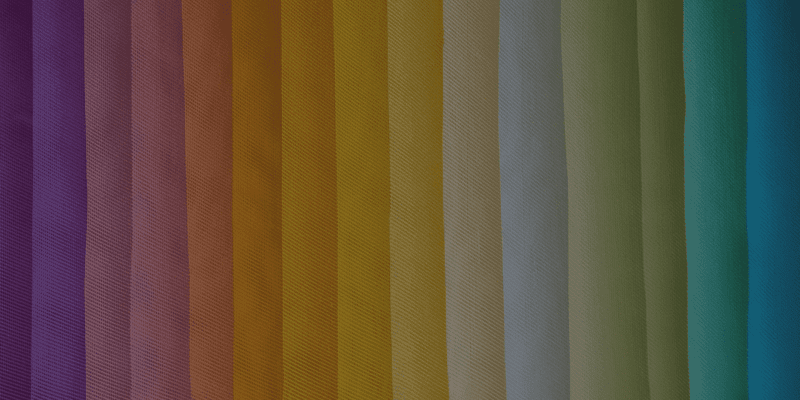This solution is just to ‘dye’ for …
- New scaled-up dyeing solution is faster and uses less materials and energy, which saves costs
- Innovative clean technology successfully combines profitability with sustainability
DyeCoo, based in Weesp, The Netherlands, has developed the first large-scale 100 % water-free and process chemical-free dyeing solution for textiles.
The unique process is based on the use of supercritical fluid carbon dioxide (SFC) technology, which involves heating carbon dioxide to above 31° C and pressurising it. In this condition, the CO2 becomes supercritical, which is a state of matter that can be seen as an expanded liquid or a heavily-compressed gas. In this phase between liquid and gas, the dye dissolves very easily. This technology has been around for some years, but industry had struggled to scale it up.
The technology uses a beam dying construction, where the fabric is rolled onto a beam and placed into a vessel. Next, the CO2 runs through the dyestuff which helps to absorb the dye and dissolve it into the textiles. The vast majority (95 %) of the CO2 used in the process is recycled after each batch.
DyeCoo’s R&D division is investigating further energy-saving methods for the sector. The company is also negotiating with several dyestuff providers across the globe to encourage them to develop dyes tailored to DyeCoo’s technology. Many textile manufacturers have recognised the potential of this new technology. Sporting giant Nike was one of the first companies to use DyeCoo technology for its collection of polo shirts.
Key benefits
The water- and chemical-free dyeing production process is shorter and uses less energy, which is good for the environment but also helps to keep operating costs down. Another important plus is that no additional chemicals – such as surfactants – are necessary. And the technology also results in more even colour distribution and uses 50 % less dyestuff to get the job done. The savings in energy, water consumption, chemicals and dyestuff can reduce costs by 40-60 %. So DyeCoo’s technology successfully combines profitability with sustainability.
DyeCoo made it onto the prestigious 2015 Global Cleantech 100 list. This list – put together by Cleantech Group – features companies that are best positioned to solve tomorrow’s clean technology challenges and make a significant market impact.
“If the entire textile industry adopts DyeCoo’s waterless dyeing process, enough water can be saved to provide every person on Earth with an extra 1 000 litres of water each year. This could also eliminate countless billions of litres of polluted discharges into waterways near manufacturing plants in Asia, where much of the world’s textile dyeing takes place.” – Statement on DyCoo’s cleantech solution.
Reference: https://www.resourceefficient.eu/en/good-practice/world%E2%80%99s-first-scaled-water-free-and-chemical-free-dyeing-solution

